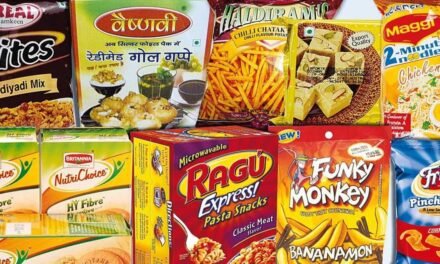The new Food Advertising Regulations prohibit companies from using deceptive words like ‘natural’, ‘fresh’, ‘original’, ‘traditional’, ‘premium’, ‘finest’, ‘best’, ‘authentic’, ‘genuine’ and ‘real’. Companies can be permitted to use such words only under specific conditions laid down under the new food advertising regulations, explains Srishti Singhania.
In the age where everyone is aspiring for a healthy lifestyle, a lot of food businesses are trying to create a niche for themselves by claiming to be healthy, natural, fresh and organic. However, the Food Safety and Standards Authority of India (FSSAI) has come up with new food advertising regulations to regulate such advertising claims and ensure that consumers are protected from any frivolous claims.
New food advertising regulations prohibit food businesses from using phrases or words such as “natural”, “fresh”, “original”, “traditional”, “authentic”, “genuine”, “real” etc., except under certain conditions. The regulations also prohibit food businesses from making specific claims and lay down conditions when making any health or nutrition claims.
These new food advertising regulations came into force on 1st July 2019. Thus, it is important for even genuine food businesses to be aware of these regulations to ensure that they are in compliance with the law and do not fall into any trouble. These regulations also prohibit marketers, including food influencers, food bloggers or anyone promoting a food business, from making any claims that are not in accordance with this regulation. Anyone not complying with these food advertising regulations can be held liable to pay a penalty up to Rs. 10,00,000/-.

“Do not use words like ‘real’, ‘genuine’ or words synonymous to the word ‘natural’ unless you are complying with the conditions under the regulations. You can use the word ‘natural’ only if your food is derived from a plant, animal, micro-organism or mineral and to which nothing has been added.“
15 things to know about Food Safety and Standards (Advertising and Claims) Regulations, 2018
1. You can use the word “fresh” only if your food or product is not processed in any manner except washed, peeled, chilled, trimmed or cut, irradiated by ionising radiation or other processing necessary for making the product safe for consumption without altering its basic characteristics in any way.
If any processing of your food increases the shelf life of your food, you cannot use the word “fresh”.
2. You can use phrases like “Frozen from fresh” “fresh frozen” “Freshly frozen” if the food was quickly frozen while still fresh.
3. You can use the word “natural” only if your food derived from a plant, animal, micro-organism or mineral and to which nothing has been added and which has been subjected to such processing which will make the food edible, such as smoking without chemicals, cooking processes such as roasting, freezing, pasteurisation, sterilisation and fermentation, and packaging done without chemicals and preservatives.
You can use the word “natural” for permitted food additives that are obtained from natural sources by appropriate physical processing.
4. Do not use words like “real”, “genuine” or words synonymous to the word “natural” unless you are complying with the conditions under the regulations.
5. You can used the word “pure” to describe your food only if nothing has been added to your food and it is free from avoidable contamination and the levels of unavoidable contaminants are as per the law.
6. In case your food is made up of a lot of natural ingredients describe your food by saying “made from natural ingredients” or “made from pure ingredients” and not as “natural” or “pure”.
7. If you are using words like “natural”, “fresh”, “pure”, “original”, “traditional”, “authentic”, “genuine”, “real”, etc., or any other adjectives in your labelling and advertising or in your brand name that may mislead the consumer as to the nature of the food appearing in the labelling, please give the following disclaimer:
“*This is only a brand name or trademark and does not represent its true nature.”
8. You can use the word “traditional” only to describe a recipe, fundamental formulation or processing method for a food or product that has existed for a generation, i.e. thirty years. You should have remained substantially unchanged for those many years.
9. You can use the word “original” to describe your food only if shall only be used to describe a food that is made to a formulation, the origin of which can be traced, and that has remained essentially unchanged over time. It should not contain replacements for primary ingredients. It may similarly be used to describe a process, provided it is the process first used in the making of the food, and which has remained essentially unchanged over time, although it may be mass-produced.
In case you are re-introducing a food/ product in the market after a particular time gap, you can describe the food/ product as “original” only if it has not changed to any material degree and shall remain available as the ‘standard’ product when new variants are introduced.
10. Some words or phrases that one should avoid using to describe your food under the new regulations:
- “natural goodness”, “naturally better”, “nature’s way”, “healthy”
- “recommended, prescribed or approved by medical practitioners or approved for medical purpose”
- “added nutrients”, if such nutrients have been added merely to compensate for the nutrients lost or removed during the processing of the food
- “home-made” or “home-cooked” if it gives a false impression about the food
11. When making any claim that your food is more nutritious than similar foods, ensure that your food has at least 25% higher energy value or nutrient content than the other food, or has at least 10% of the recommended dietary allowances for claims relating to micronutrients.
12. Do not advertise or promote food or beverages as a meal replacement unless specifically permitted.
13. Comply with the conditions when making any claims that your food has no added sugar or salt or additives.
14. Do not make any claim that your food/ product reduces the risk of any diseases without taking prior permission from the food authority.
15. Do not make any claim or advertisement undermining the food or product of any other business to promote your own food business.
The author is a senior lawyer at Singhania & Co., Mumbai
Disclaimer: The information in this article is not intended to constitute legal or other professional advice or services. The information is not intended to be relied upon as the sole basis for any decision, which may affect you or your business. Before making any decision or taking any action that might affect your business, you should consult a qualified professional adviser. Publication or the author shall not be responsible for any loss whatsoever sustained by any person who relies on the information contained herein.

















